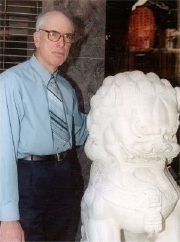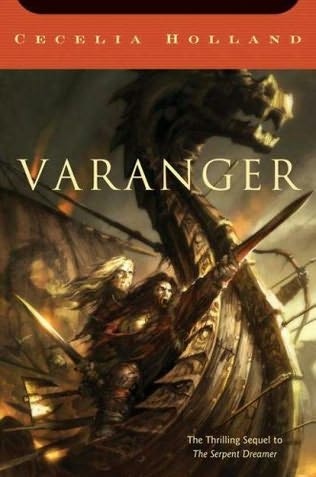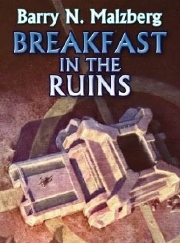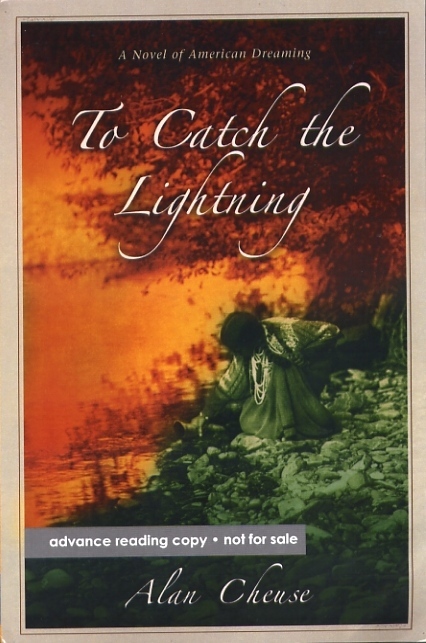|
|
|
|
This Just In...News
From The Agony Column
|
| |
|
10-31-08: Stewart O'Nan Sings 'Songs of the Missing' ; Agony Column
Podcast News Report : Kim Stanley Robinson Reads at SF in SF
|
You Are Different
Without Her
We like to think we
are simply ourselves, each whole and indivisible. But it's just not true.
|
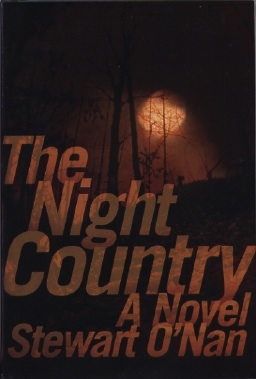
|
A must-read intense, gripping novel. |
Stewart O'Nan's
'Songs of the Missing' (Viking / Pengin Putnam ; November 3, 2008 ; $25.95)
explores the ripples in a small American town when a young woman simply
vanishes. O'Nan is already established as one of the great contemporary
novelists, with works like 'A Prayer for the Dying' and 'The Night Country'.
His prose is peerless and his ability to arc emotions and narrative unsurpassed.
But mostly what O'Nan gets is America, the sort of suburban–exurban
lifestyle that lets us know one another without really knowing one another.
He intuits the threads of friendship and acquaintance, the powerful tides
of parenthood, how brothers, sisters and close friends feel about one
another. We may indeed be islands, but if that's the case then we are
islands strung out in an archipelago, with deep connections buried beneath
a troubled surface. Some close enough to touch, some close enough to see,
some – close enough not to see. Remove one and the entire chain,
the web of life is disrupted. It can never be the same again.
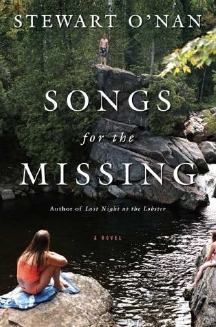 |
|
|
Who we are not. |
'Songs of the Missing'
begins with "Description of the Person, When last Seen." That's
Kim Larsen, about to go off to college, but working her last summer at
the Conoco. She hangs a it with her best friend Nina and her boyfriend
J.P.
Then she never comes home.
What follows is a tense, stripped down but poignant examination of what
those left behind become in the aftermath of her disappearance. O'Nan
masterfully maintains suspense and tension, but extends the reach beyond
plot to the emotional lives of Kim's friends and family. As the disappearance
goes on, each of them will have to journey to a new self that exists without
Kim. They re-create themselves and discover aspects of their own characters
that they might otherwise never have acknowledged. There is emptiness
to fill and occupied spaces that need to be emptied. Pain and guilt run
side-by-side relief and wonder: "Why not Me?" "Me"
falls into flux and there's no easy answer as to when it will settle down.
While this is the sort of subject that can become bathetic, O'Nan's got
the mad skills to ensure it is simple and powerful.
He's covered similar, if not the same ground in 2003's 'The Night Country.'
Like 'Songs of the Missing', 'The Night Country' addressed the issue of
loss. Both books demonstrate O'Nan's ability to write simple, but not
simplistic novels in prose that flows like the rivers that run through
the small towns he writes about. O'Nan knows the calculations that add
up to a personality, and he knows how to write about them. And not just
write, really; he knows how to sing the songs we hear in our heads.
|
Agony Column Podcast
News Report : Kim Stanley Robinson Reads at SF in SF : 'Sixty Days and
Counting'
|
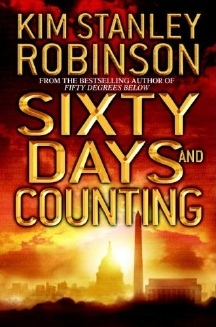
|
...59...58...57...56...55...54... |
Today's podcast is
Kim Stanley Robinson's iconoclastic reading from 'Sixty
Days and Counting' from SF in sf on October 18. Iconoclastic because
he chose to read a passage from the novel that really has nothing to do
with science fiction or speculative fiction and contains no elements of
the fantastic – other than his wonderfully-wrought prose. I'll
let listeners enjoy what he does read without spoiling the surprise of
the subject with this link to the MP3 file. But I'll share this, that
for DAYS afterwards I've been hearing those words rattling around in my
brain and talking to my friends about what Robinson wrote. That's what
great writing does; it sneaks up on you and returns to redefine your world.
I will admit I would not have minded hearing Robinson's other choice for
a reading from this book; he told us he was considering reading his creation
of the Inaugural speech of a President who finds himself elected in the
midst of an ecological disaster. And moreover, readers can relish this
thought, which he also mentioned; after this coming election, Robinson's
novel moves from the realm of science fiction to historical fiction.
In case we wondered what fate awaited the genre we all love.
|
| |
|
10-30-08: A 2008 Interview with Amity Shlaes
|
'The Forgotten
Man : A New History of the Great Depression'
|

|
A new view of the New Deal. |
We'd all like to think
that we've learned from history and won't repeat the mistakes of the past.
Of course, that inclination is based on a presumption that we know
history, that the narrative story we tell ourselves about our past is
accurate. But if that's not the case, then all our so-called knowledge
is for nought. Basing our understanding of the present on a mistaken notion
of the past allows us to make the same mistakes once again in the light
of a new day.
Of course, all this learning from the past suddenly seems quite relevant
when everywhere we look were being told that we're either headed
for or already in an economic period that is similar to, if not worse
than, the Great Depression. Fortunately, we know the Great Depression,
we've got that story down cold. The excesses – moral and economic
– of the 1920's lead to a boom based on nothing that collapsed in
the 1930's. Laissez-faire capitalism ran amuck until it was tamed by FDR
and brought into line by the boundaries of the New Deal. What we now call
progressive economics lead to economic progress, slow but steady until
World War II, when a wartime economy finished the job that Roosevelt had
started.
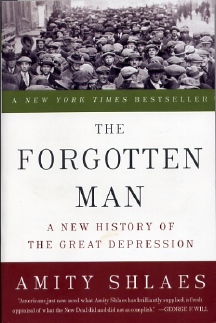
|
|
|
Forgotten not more. |
But what if that narrative
is not accurate? Amity Shlaes takes a look at the Great
Depression in 'The Forgotten Man: A New History of the Great Depression'
(Harper Perennial / Harper Collins ; May 27, 2008 ; $15.95), and comes
up with a rather different assessment of what went wrong and what went
right. Her book is a gripping and insightful look at times gone by and
tailor-made for our complicated current situation. Our comforting narrative
of excess, punishment and redemption may not be the most accurate rendition
of what came to pass during the Great Depression. Shlaes' vision shows
an America grown almost Dickensian in poverty and the response to poverty,
but more importantly, shows that what are generally perceived as the cures
for the Depression may have managed to make it worse. And of course, the
urgency of this book cannot be overstated; this is compelling reading
that turns our perceptions upside-down and calls into question the big
decisions being made in the name of the small businesses.
I spoke
with Shlaes about the Great Depression, her book and the current economic
crisis. She's a quick wit who absolutely knows her topic. She'll turn
your head around and undermine what you think to be true. We're making
momentous decisions and basing them on an understanding of history that
is itself flawed. It seems that history is likely to repeat itself –
but that is not graven in stone.
|
| |
|
10-29-08: Gavin Smith's Haunting 'Dogfellow's Ghost'; Agony Column Podcast
News Report : Cecilia Holland Reads at SF in SF
|
"The Master
does not know."
The prose is the thing.
It's easy to forget this when you read a book. Sometimes, the words are
just like a bus that takes you somewhere; you dont care about the
bus itself, you just want the ride to be smooth and the destination to
be enjoyable. And often enough, that's enough.
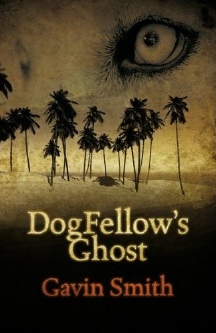
|
|
|
His Master's Voice. |
But then you pick up
a book like 'Dogfellow's Ghost' (New Writing / Pan MacMillan ; October
2, 2008 ; £14.99) by Gavin Smith and if you're
lucky, you flip to the first pages and read, only to find someone speaking
to you; a confidential, confident voice, whispering in your ear about
loss, regret, and what it means to be ... human. The sort of voice that
conjures up images of our own life to bring the book to life.
Smith's novel is a short and bittersweet meditation by Dogfellow, one
of the Master's creations who lives on after the Master himself has met
his fate at the hands of one of his own creations. The Master, who walked
out of an H. G. Wells novel and into Smith's lovingly-wrought work, lives
in Dogfellow's memories. Smith uses quiet, tight prose that evokes a sense
of wonder as well as a deep emotional connection for the reader. His ability
to traverse the terrain between human and canine is authentically uncanny
in the strictest Freudian sense. Yes, I know that Freud is discredited
as a scientist, so to speak, but as a literary theorist, he's really spot
on, especially where the literature of the fantastic is concerned. He
actually descended from his scientific perch to speak about aesthetics
in his essay "The
Uncanny," and its a work that should probably be more
thoroughly understood and acknowledged in the world of weird fiction.
'Dogfellow's Ghost' is a perfect example. Trapped between the animal and
the human, Dogfellow captures the concept of something that is familiar
and foreign, with the resultant emotion in the reader being a cognitive
dissonance that puts one at a pleasant distance from one's own life. What
works so well in 'Dogfellow's Ghost' is the fact that Dogfellow is familiar
to us on two levels; as a (not-quite) human character and as an anthropomorphized
canine. The frisson of the uncanny cuts two ways and complicates our emotional
involvement.
Obviously, 'Dogfellow's Ghost' is sort of obscure, in that it's a first
novel from a UK author and publisher. It might just whiff by without a
mention. It's the product of a pretty interesting project over at MacMillan,
the New Writing Program. Here's what their publicist, Sophie Portas told
me about it: " Macmillan New Writing was launched in 2006 with the
aim of discovering superb new novelists writing in all genres. It publishes
one novel per month and welcomes submissions from unpublished novelists.
You can find out more info about the imprint from our website at:"
http://www.panmacmillan.com/imprints/Macmillan%20New%20Writing/
As a reader and critic who enjoys First Books, I find this a heartening
development with a pretty torrid pace. And I suspect a few writers out
there might find it of interest as well.
But even though this is a first novel, that does not mean that it doesn't
have a potentially very wide appeal and a lot of possibility. It's short
and written in a sort of simple manner that suggests it could be sold
as both an adult fiction and a YA work. (Again the combination of the
Uncanny.) But it also gets another helping hand from the fact that it
is a novel told from a canine point of view and it's not a sappy serving
of slobbishly sentimental slop. Because, let me tell you, if I could get
a buck a pop for every damn doggie book that comes through my door I could
stuff a decent mattress. If there's room on bestsellers lists for 'The
Art of Running in the Rain', then said-same lists should clear the path
for 'Dogfellow's Ghost'. Assuming it makes it over the pond.
|
Agony Column Podcast
News Report : Cecilia Holland Reads at SF in SF : Varanger
Psst ... wanna hear
some bad-ass historical fiction with riots a brewin' and scary burials?
Look no farther
than this link to my MP3 recording of Cecilia Holland
reading from Varanger'. There's a touch of the weird here, and lots
of grit to make that weird seem utterly realistic. Interestingly, Kim
Stanley Robinson, who appeared on the panel with Holland, told the panel
that Holland was a primal influence on his work. It will be pretty clear
as to why this is when listen to the MP3.
|
| |
|
10-28-08: Barry N. Malzberg has Breakfast at the Ruins' : Agony Column
Podcast News Report : Barry N. Malzberg Reads at SF in SF
|
Exercise for Students
|
|
|
A
literary lion and a light aperatif. |
What could be more
sublime than 'Breakfast at the Ruins', Barry N. Malzberg's
expanded edition of 'Engines of Night', a classic collection of astute
and unsparing criticism aimed at science fiction? I
can answer this quite succinctly, in MP3 audio, with this link to Malzberg
reading from that classic collection at the last gathering for SF
in SF, where he was joined by Kim Stanley Robinson
and Cecilia Holland to talk about the simpatico between
science fiction and historical fiction with moderator Terry Bisson,
and in Malzberg's case, cast an eye on the past. Let me assure the readers
and listeners that Malzberg is utterly, totally hilarious and quite tart
in his willingness to accept the literary nature and failings of science
fiction. 'Breakfast at the Ruins' belongs on any serious literary or genre
bookshelf.
One of the
fascinating aspects of this book is the changing view of the genre from
within the genre itself as captured by Malzberg. As we draw close to half
a century away from the "Golden Age" of science fiction (no,
not 14 years old and male), as the technological wheel spins ever faster
and less certainly, as the clockwork universe comes undone and is replaced
by the granular detritus of quantum uncertainty, a good sense of humor
becomes an essential part of the toolkit we need to decode the present.
We're living in a future well beyond the dates specifies in many of the
great science fiction works. They predicted nothing – but presaged
everything.
|
| |
|
10-27-08: A 2008 Interview With Alan Cheuse
|
"...the big
books from the old days..."
|
...captured,
that is, in words. |
|

|
The Voice of NPR Books. |
Alan Cheuse
writes the sort of novels that immerse readers in another time, another
place, another life, and not surprisingly – because he does so himself.
I had the opportunity to sit down and talk with Cheuse before the release
of his latest novel, 'To Catch the Lightning', and find out the genesis
of this delicately layered yet propulsive novel. It's the story of Edward
Curtis, who took his first portrait of an American Indian – Princess
Angeline, or Kickisomlo in 1895. Five years later he was invited to join
an expedition to photograph the Blackfeet Indians, and in 1906 J. P. Morgan
offered him $75,000 to take 1,500 photographs that would fill 20 volumes.
Cheuse talks about immersing himself in those volumes in the Library of
Congress, and about the wax cylinders that still exist. He tells both
the fascinating story of Curtis himself and his own long struggle to write
the novel. As befits a book reviewer for NPR, he also offers some nice
craft tips, though theyre sort of a double-edged sword. It's excellent
advice, but you might want to plan out our time for perhaps, the next
ten years. In the interim, you can read 'To Catch the Lightning' which
will offer a lifetime of experience for a few sittings in front of nice
winter fire. And
of course, hear Alan Cheuse speak about his novel in this MP3.
|
| |
|
|


